How should you store coffee beans? We asked coffee roasters for their best tips
Never put them in the fridge – please
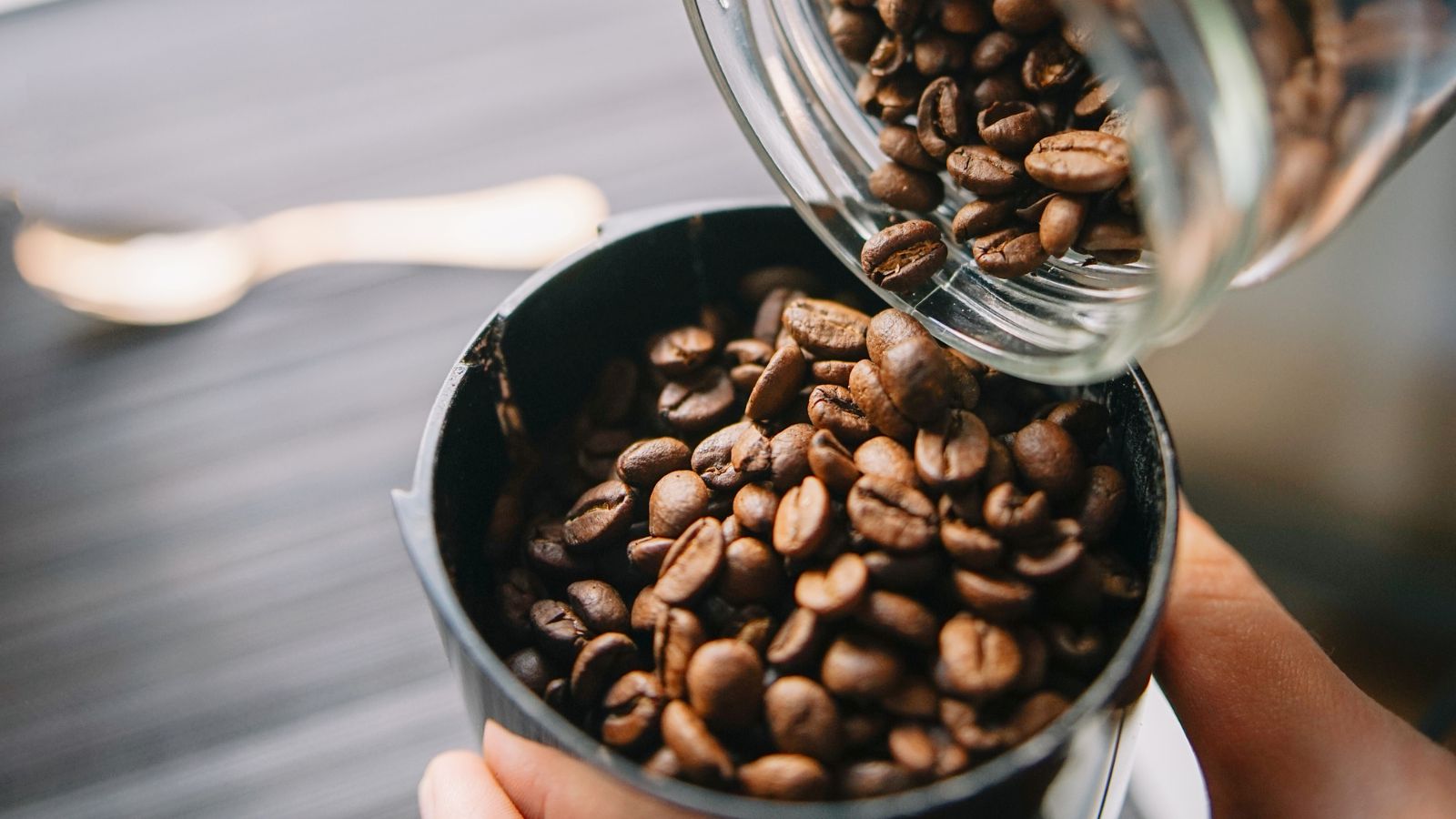

You could have the most expensive coffee maker, best beans, and barista-worthy skills, but if you don't know how to store coffee beans properly, you'll never make a good coffee.
To keep your coffee beans fresh and full of flavor, they must be protected from three key factors. According to the National Coffee Association, these are light, humidity, and oxygen. The best coffee canisters will protect against these by default. However, if you're looking for simple home solutions for storing your coffee beans – as well as answers on how to store coffee grounds – you're in safe hands.
I'm a former barista who's spent years debunking common myths around coffee bean storage (please, please stop putting them in the fridge). I've also spoken with coffee roasters and baristas to give you everything you need to know for storing coffee beans including where to store them, the best way to store coffee them, and whether you should store them as whole beans or coffee grounds.
How to store coffee beans to keep them fresher for longer
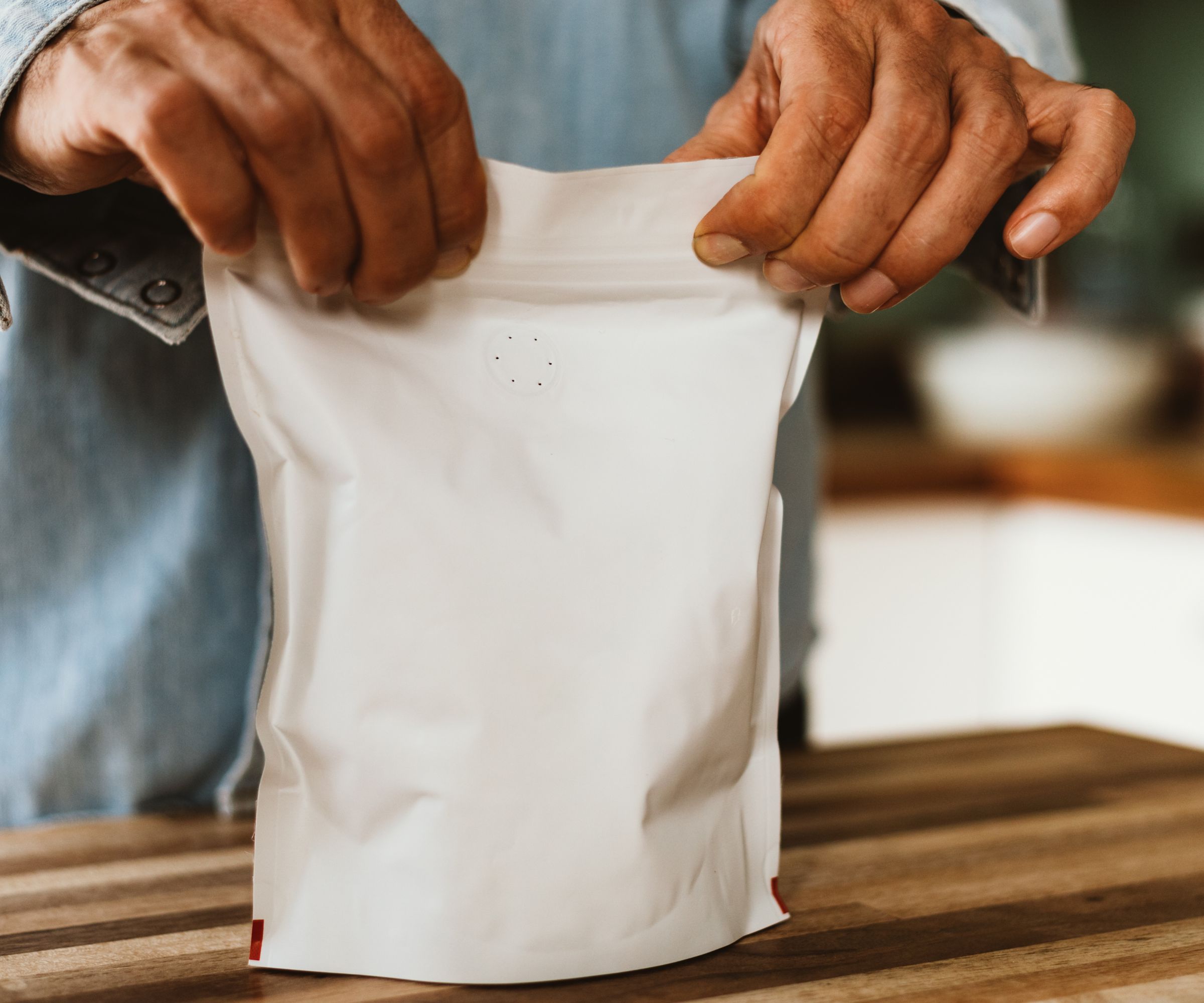
Coffee beans are a lot like coffee grounds. The worst things for them are oxygen, moisture, heat, and light. The presence of any or all of these will degrade the delicious oils in your beans, making them taste sour and bitter.
Any coffee canister worth its money will protect against all of these, so it's worth investing in some of the best coffee canisters on the market. Once you have one of these, the only thing you'll need to watch is the temperature. Steve Simmons from Octave Coffee says to 'opt for an environment where you know you can keep a stable temperature between 60-75°F.'
Simmons also recommends making a storage plan. He says 'Your coffee will taste best between seven and fourteen days after roasting.' There is such a thing as having coffee which is too fresh. However, some people like their coffee when it has been left for longer after roasting. It's a factor you can experiment with.
All experts tell you to keep your beans whole and well-stored for as long as possible. Grind your coffee just before brewing, because as soon as your coffee is ground, it will degrade much quicker than when it was a whole bean. Simmons recommends experimenting with different timelines post-roasting to find your perfect cup though.
Here are some of the best coffee canisters on the market. They've been vetted and approved by coffee experts.
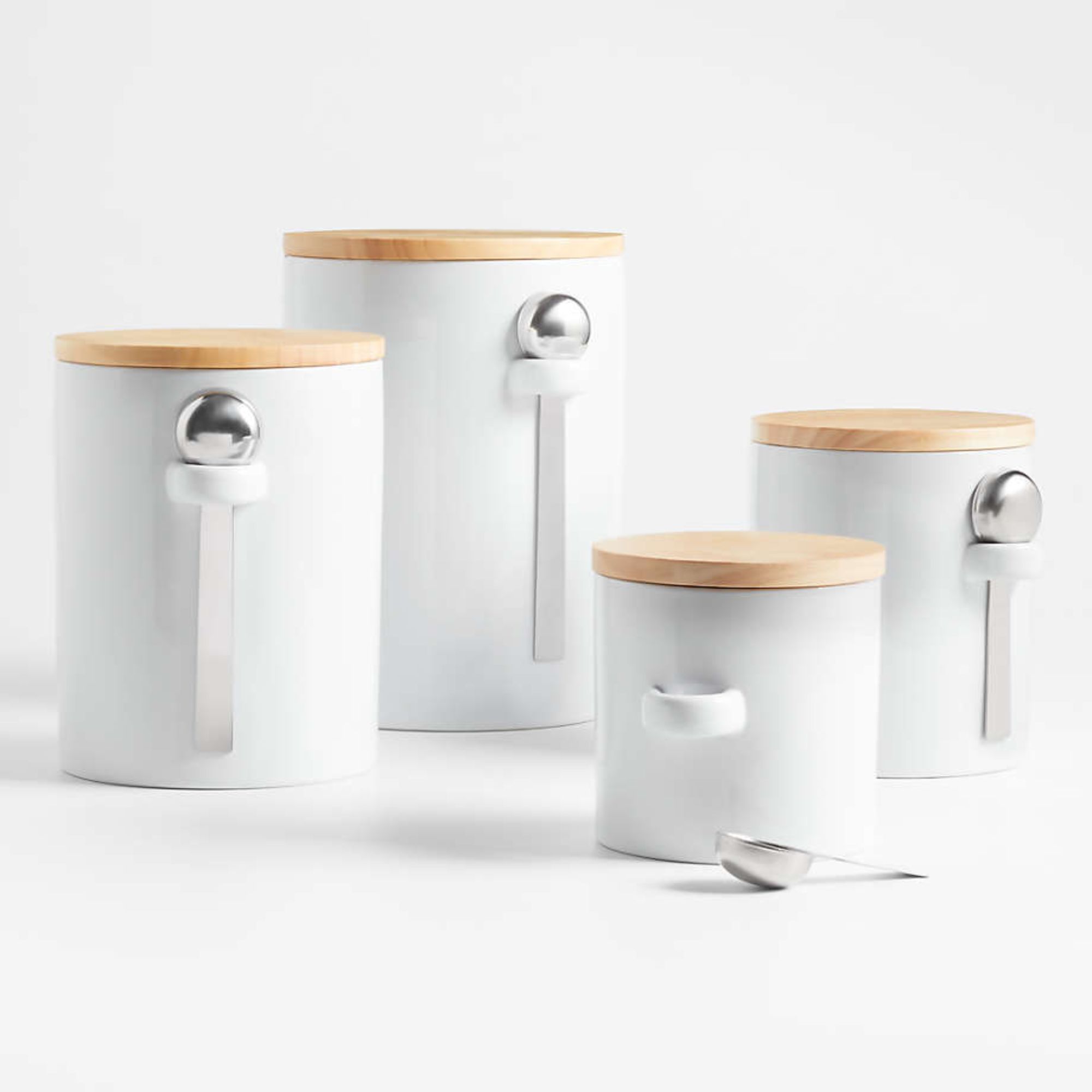
Capacity: 12-89 oz
Material: stoneware
Dimensions: 6.1 x 6.9 x 8.1 inches
You can't go wrong with this Aspen set. They're reasonably priced, simply designed, completely airtight, and come with a neat scoop holder integrated.
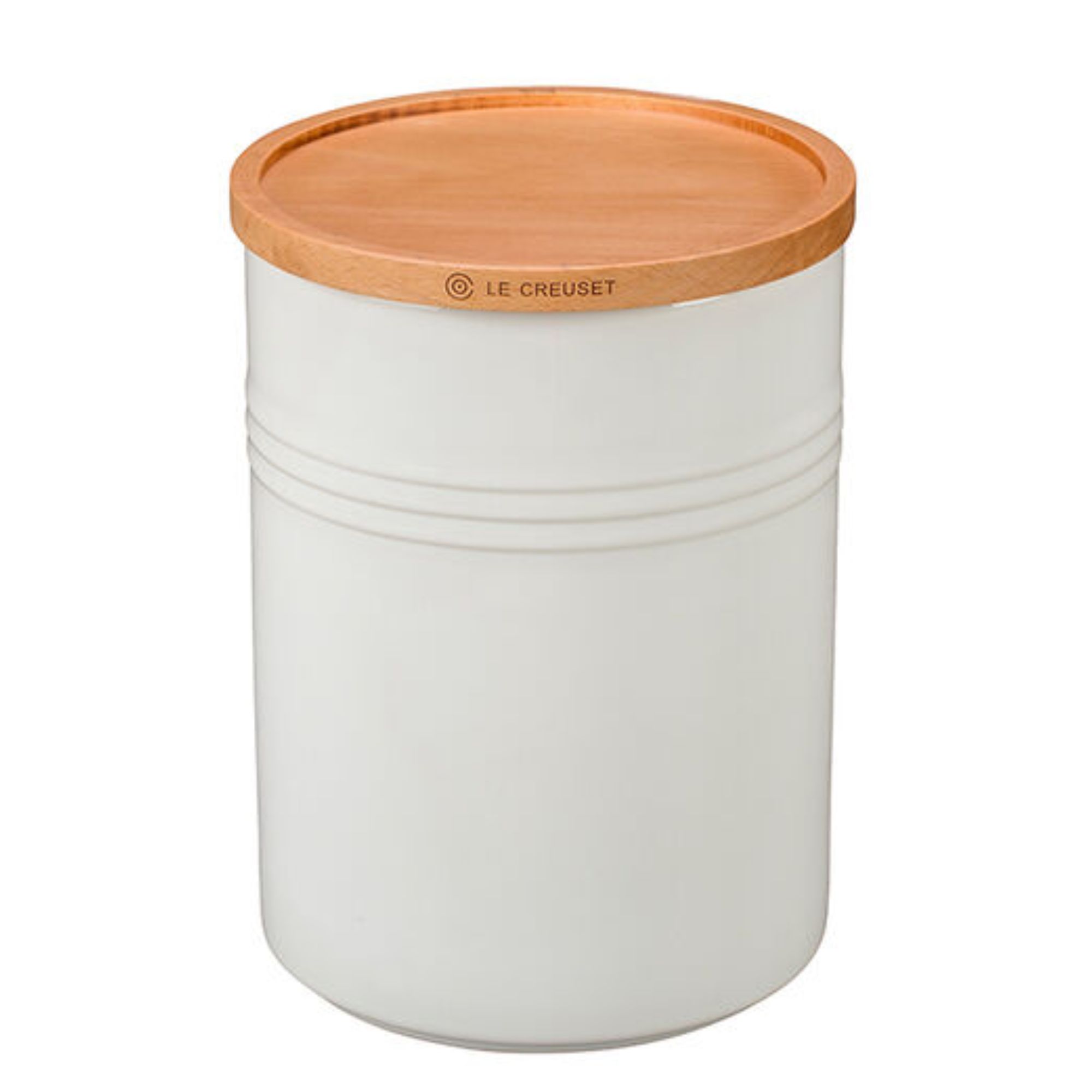
Capacity: 23-160 oz
Material: stoneware
Dimensions: 12.3 x 6.5 x 9 inches
These canisters are heirloom-worthy. They're signature Le Creuset, made with durable stoneware and enamel-coated. Use them for all your pantry essentials.
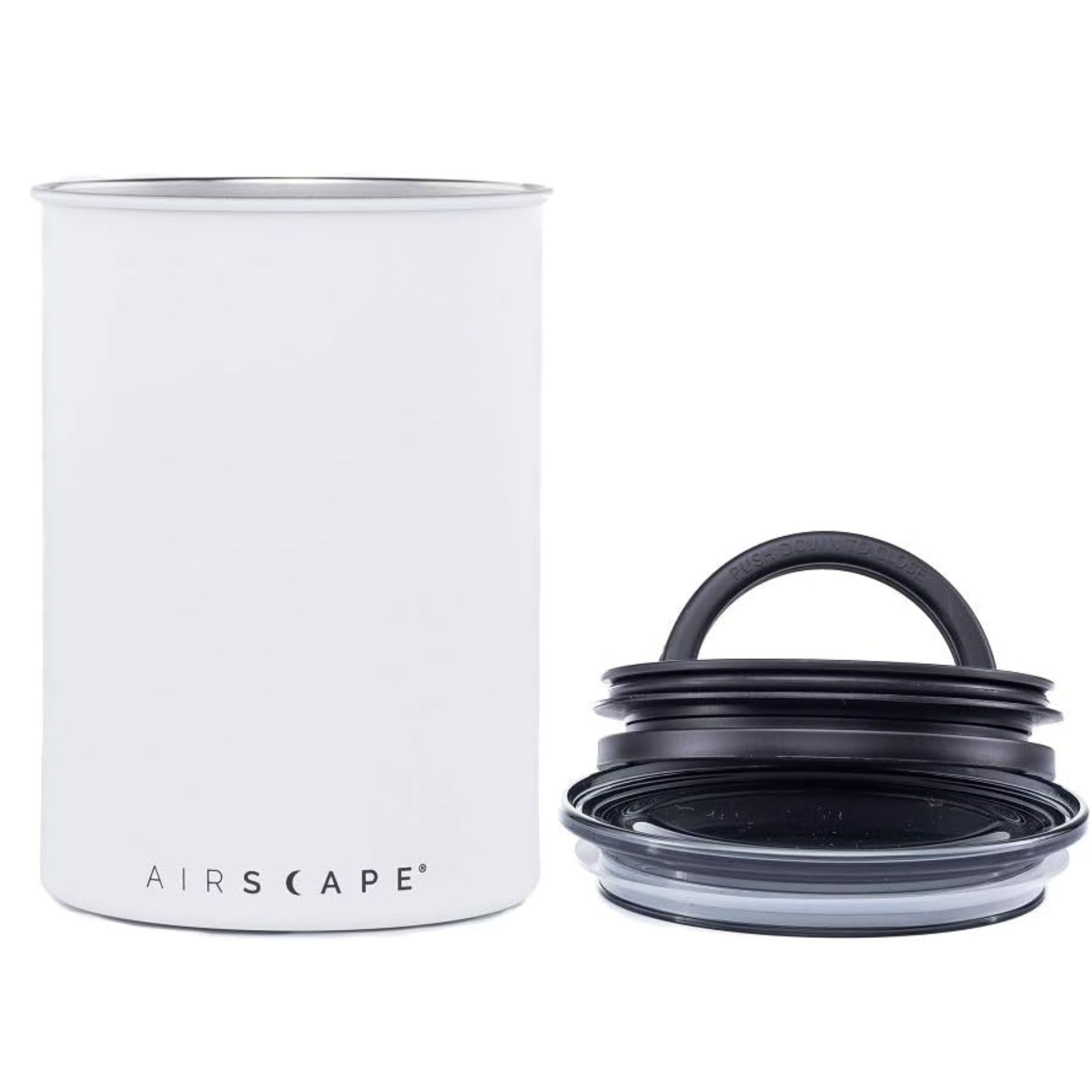
Capacity: 64 oz
Material: stainless steel
Dimensions: 5 x 5 x 7 inches
Airscape are the specialists. They use patented airtight, vacuum sealant lids to keep your coffee fresher for longer. These are stackable too, so grab a few.
If you're caught short and don't have a coffee canister in stock, you're not out of options. The original packaging your coffee comes in isn't a bad place to start. Jessica Easto, author of Craft Coffee: A Manual, says 'many coffee shops package coffee in bags that are perfectly suitable for storing. Simply push out as much air as possible before tightly closing the bag and storing it in a cabinet or other dark place.'
Unopened, a good coffee bag should keep your coffee fresh for nine months. There's some controversy over whether you should open the packaging and transfer your beans to an airtight container. The general conclusion is this: if the coffee bag features a one-way valve, letting out gas, but no oxygen in, this is a great way to store your beans. Kayla Stavridis, a former barista and coffee expert says 'CO2 valves are excellent for extending the freshness of coffee beans, because it will let air out without letting oxygen in.' However, she says to buy in small quantities – only as much as you would use in a few weeks – to ensure that you're drinking coffee at its freshest.
However, if you put your beans into an airtight container, they'll last longer than in the bag, because you can control the light and temperature much more effectively.
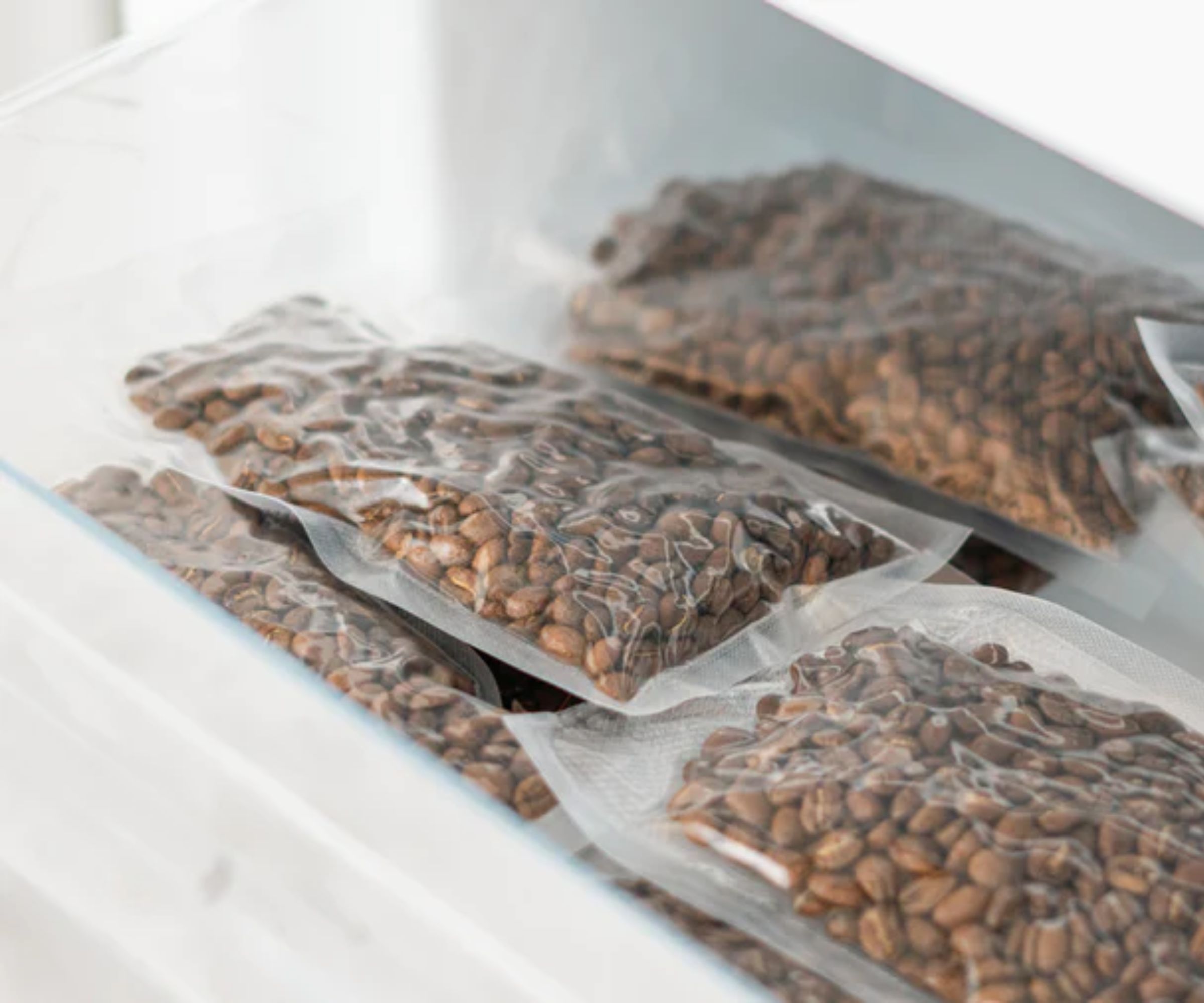
Some people will tell you to store your coffee beans in the freezer. Again, it's a topic of much debate within the coffee community. Max Simmons, from Old Spike Roastery, says 'even with proper storage, beans in the cupboard will inevitably lose their freshness and flavors over time. Storing them in the freezer can shield them from oxygen and light, their two greatest foes.'
They explained that improper freezing and condensation are two great risks you take in freezing your beans. If you get some moisture into your storage cannister, your beans will taste bitter and stale. Make sure you have an airtight container and a reliable freezer.
Common mistakes people make when storing coffee beans
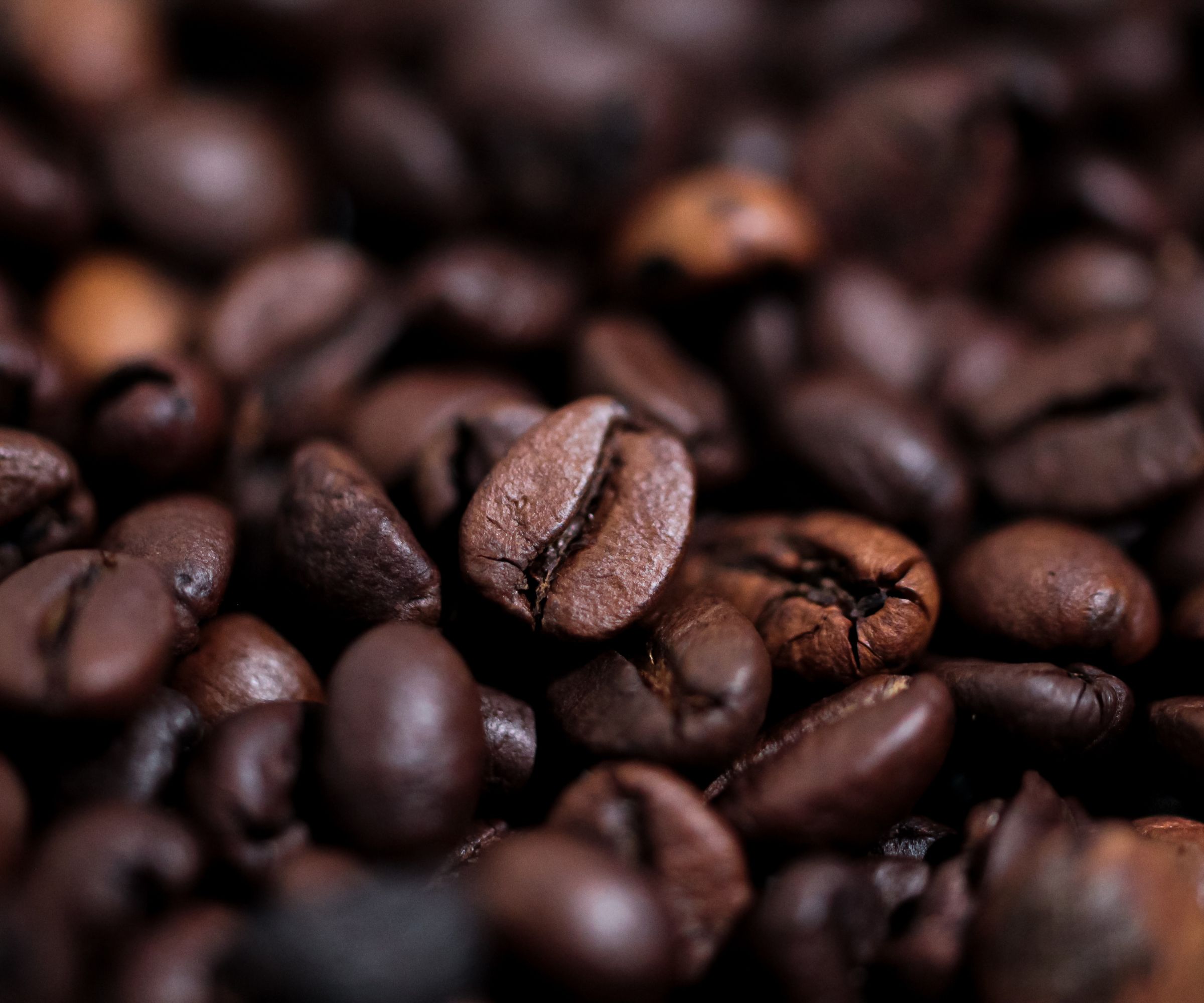
When I talk to people about their coffee bean storage, I've lost count of the number of times I've heard 'I keep mine in the fridge.' I understand why logic might have made them think that this is a good idea – we keep a lot of food and drink in the fridge – but never, never keep your coffee beans in the fridge. According to the National Coffee Association, the 'hygroscopic' nature of coffee means that it absorbs all the ambient moisture in the air. Keeping them in the fridge is the worst place you can put your beans.
Ideally, you'll keep them at room temperature. If you need to prolong the life of your beans, you can keep them in the freezer – just don't take them in and out all of the time and make sure they're well-sealed.
Brain Abernathy, founder and master roaster at Grumpy Goat Coffee, says 'I've seen plenty of people do all the right things for storing coffee beans and then they'll go and put an expensive coffee canister right next to hot appliances, such as a stove or toaster oven. They might even put it on the window for display. He says 'even the best containers won't be able to prevent all of this heat or light from degrading your beans, so position them intentionally. Try to keep them in the most stable environment you can. In an airtight, opaque container in the pantry is best'.
FAQs
How can I tell if my coffee beans are off?
Kayla Stavridis, former barista and coffee expert, says there are a few easy checks you can run to find out whether your coffee is off. She says 'Smell your coffee, because fresh coffee beans have a strong, pleasant aroma. If your beans smell musty, sour, or like cardboard, they've likely gone stale. Also, if you beans have lost flavor, taste bitter, and look dry or cracked (they should have a slight sheen from natural oils) they're likely past their prime.'
Should I buy coffee beans in bulk?
Buying beans in bulk means you'll have to store them for longer. They'll start degrading quicker, so you're better to buy beans in small batches and consume them within the 7-14 day period after they've been roasted. I've kept mine, in good containers in the pantry, for nine months and been fine, but experts will always tell you to buy small amounts, often.
Sign up to the Homes & Gardens newsletter
Design expertise in your inbox – from inspiring decorating ideas and beautiful celebrity homes to practical gardening advice and shopping round-ups.

Laura is our eCommerce editor. As a fully qualified barista, she's our expert in all things coffee and has tested over thirty of the best coffee makers on the market. She has also interviewed Q-Graders and world-leading experts in the coffee industry, so has an intimate knowledge of all things coffee. Before joining Homes & Gardens, she studied English at Oxford University. Whilst studying, she trained as a master perfumer and worked in the luxury fragrance industry for five years. Her collection of home fragrance is extensive and she's met and interviewed five of the world's finest perfumers (also known as 'noses'). As a result of this expansive fragrance knowledge, she always puts quality and style over quantity and fads. Laura looks for products which have been designed simply and with thoughtful finishes.
-
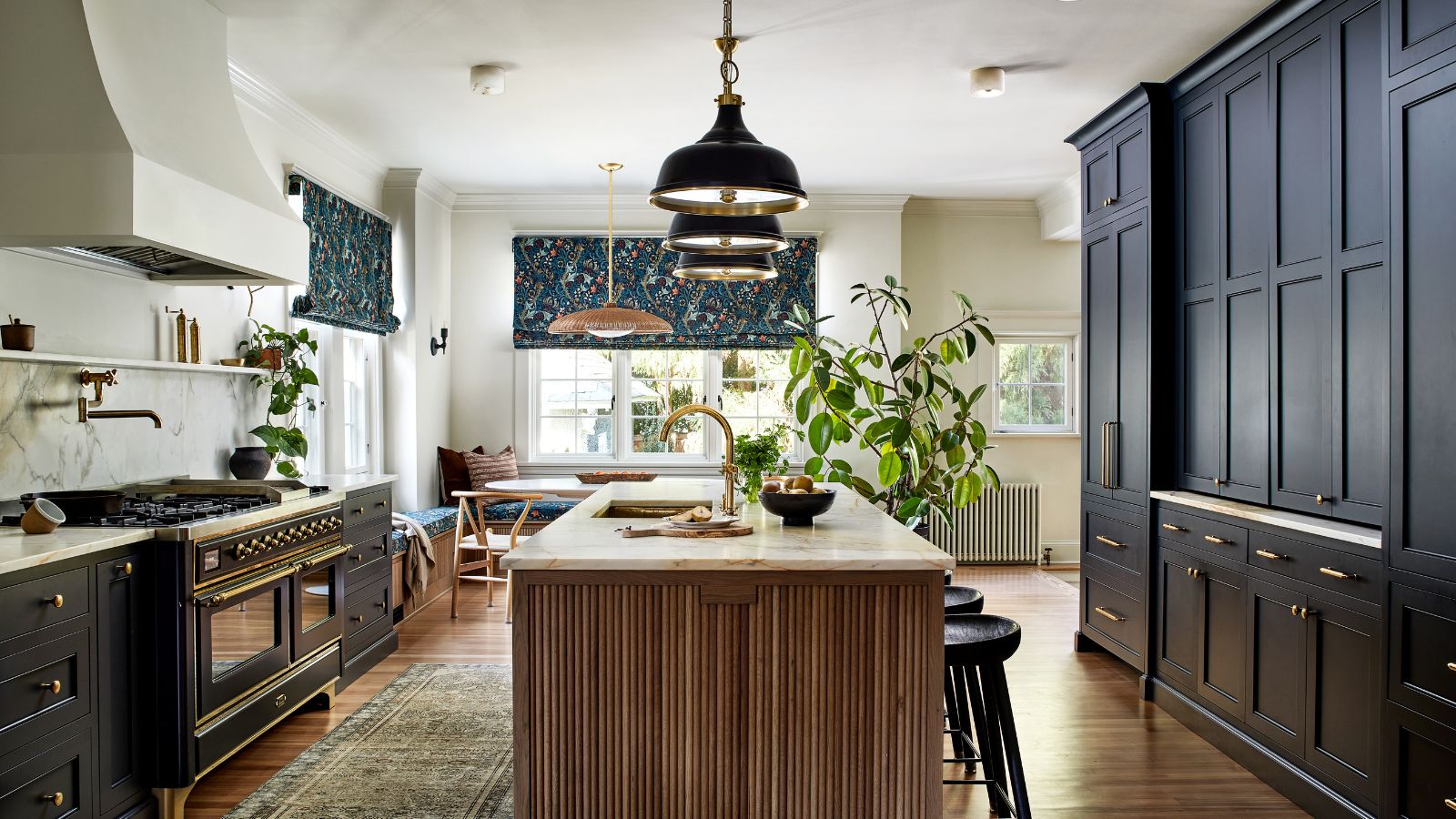 This once-dated kitchen is now a timeless space with the coziest details – and its the classic color palette that's made it a chic, welcoming space
This once-dated kitchen is now a timeless space with the coziest details – and its the classic color palette that's made it a chic, welcoming spaceWarming colors and natural materials combine to create this enduringly classic kitchen scheme
By Molly Malsom Published
-
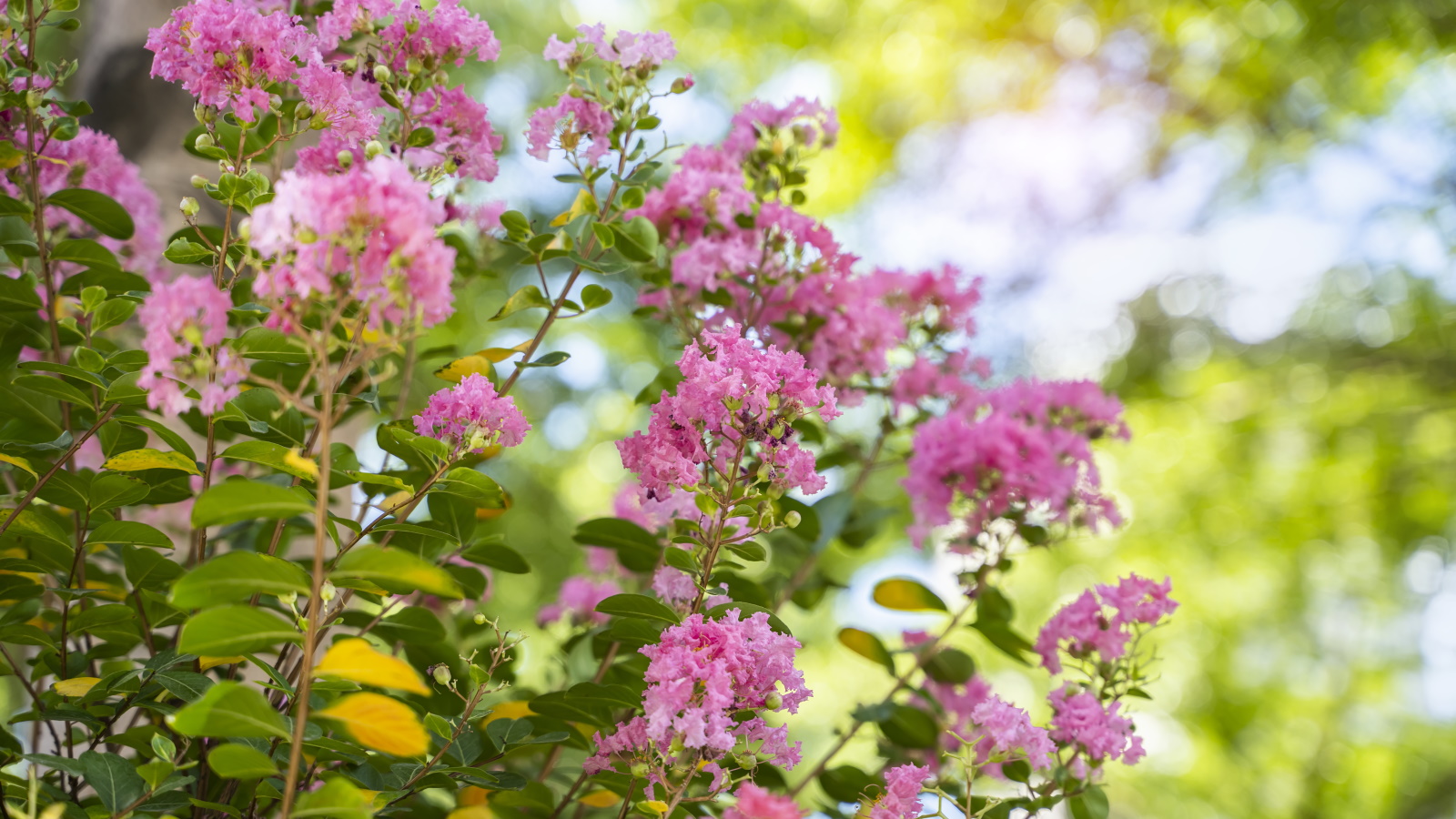 How to grow crepe myrtle in pots – and transform even the smallest of yards with dazzling flowers this summer
How to grow crepe myrtle in pots – and transform even the smallest of yards with dazzling flowers this summerGrowing crepe myrtles in pots will inject splashes of brilliant color into your outside space
By Thomas Rutter Published